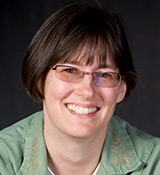What is Psychology?
Psychology can help us understand the people around us – both how they act and think. In this area of study, we examine human behaviour using the scientific method to answer questions about how we cope with stress, recover from brain injuries, develop language and social skills, understand others through our emotions and more.
Psychology and Mental Health at Augustana
In this program, you’ll study different psychological topics and theories and will be able to understand and use psychological research. You will also learn how to think critically and present your ideas and arguments about psychology in a professional way.
Choosing to study psychology and mental health at Augustana will give you the chance to take a certificate in topics like brain research and community mental health, and spend time volunteering.
Program Information
Psychology and Mental Health is available as a(n):
- Major in the Bachelor of Arts degree program
- Contributing Discipline in the Bachelor of Arts Interdisciplinary Studies Law, Crime & Justice Studies Major
Academic Innovations
All programs at Augustana include a wide-ranging liberal arts and sciences core, taught within our unique “3-11” calendar.
Careers
An undergraduate degree majoring in Psychology and Mental Health from Augustana is great for people wanting a diverse selection of careers after graduation such as:
- Clinical Psychologist
- Forensic Psychologist
- Social Worker
- Speech Language Pathologist
- and many more!
Courses
An introduction to the study of personality. This course looks at relevant research and theoretical points-of-view.
Biological, cognitive, and social aspects of psychological development, with special emphasis on infancy, childhood, and adolescence.
A survey of research on intimate relationships and human sexuality from individual and interpersonal perspectives. Topics covered may include methods of sexuality/relationship science, attraction, gender identity, sex roles, sexual orientation, sexual attitudes and behavior, and relationship stresses.
Investigation of the neural mechanisms that underlie learning, memory, and addiction.
Overview of the major approaches to counselling, providing the foundation for the counselling process. The student is involved in a variety of experiences in order to understand the basic concepts of each approach. Issues within the counselling profession such as ethical behaviour and career opportunities are also covered.
Related Information

Kathie Bailey, PhD
Kathie Bailey is a developmental psychologist whose primary interest is in how children think. Kathie's research involves investigating language, social perspective taking and executive function in school-aged children.
Visit their website
Ana Klahr, PhD
Ana Klahr is a neuroscientist whose main area of interest is stroke. Ana uses animal models to try to understand neuronal damage and identify therapies for stroke patients.
Visit their website
Paula Marentette, PhD
Paula Marentette is a cognitive psychologist with a primary interest in how people think. Paula uses gesture and language as tools to explore symbolic thought in children.
Visit their website
Sean Moore, PhD
Sean Moore is a social-cultural psychologist with a primary interest in examining the causes and consequences of human emotions.
Visit their website
Rebecca Purc-Stephenson, PhD
Rebecca Purc-Stephenson is an applied social psychologist whose primary area of research interest involves how people adapt to chronic illness.
Visit their website